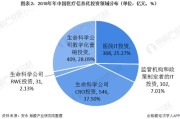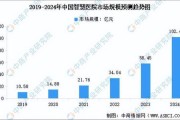大数据在医疗行业的应用是一项潜力巨大的技术革新,它可以帮助医疗机构更好地理解患者的健康状况、提高诊断和治疗水平,以及改善医疗资源的利用效率。以下是大数...
2024-05-25 625 医疗大数据项目系统 大数据医疗行业最重要 大数据医疗行业总结 大数据医疗行业分析 大数据医疗行业应用
In recent years, the healthcare industry has witnessed a significant transformation with the advent of big data analytics. The vast amounts of data generated from electronic health records (EHRs), medical imaging, wearable devices, and genomic sequencing hold immense potential to revolutionize patient care, enhance clinical outcomes, and streamline healthcare operations. However, harnessing the power of big data in healthcare comes with its own set of challenges and opportunities. Let's delve into these aspects in more detail.

1.
2.
3.
4.
5.
1.
2.
3.
4.
5.
While the challenges of leveraging big data in healthcare are significant, the opportunities for improving patient care, driving innovation, and enhancing healthcare delivery are equally compelling. By addressing data privacy concerns, enhancing data interoperability, and fostering a culture of datadriven decisionmaking, healthcare organizations can harness the full potential of big data analytics to transform the future of healthcare.
标签: 医疗大数据采集 医疗大数据项目系统 医疗大数据的应用 大数据医疗分析图 医疗大数据论文3000字
相关文章

大数据在医疗行业的应用是一项潜力巨大的技术革新,它可以帮助医疗机构更好地理解患者的健康状况、提高诊断和治疗水平,以及改善医疗资源的利用效率。以下是大数...
2024-05-25 625 医疗大数据项目系统 大数据医疗行业最重要 大数据医疗行业总结 大数据医疗行业分析 大数据医疗行业应用

医疗大数据的需求随着医疗科技的飞速发展,医疗大数据已经成为医疗行业重要的一部分。医疗大数据指的是通过收集、整合和分析医疗领域的大规模数据来揭示潜在的疾...
2024-05-15 1.0K+ 医疗大数据的应用 医疗大数据的现状 医疗大数据需求分析报告 医疗行业大数据分析 医疗行业大数据应用目标

华为医疗大数据:革新医疗行业的数据驱动力量随着信息技术的飞速发展,大数据已经成为许多行业转型升级的关键推动力量之一,医疗行业也不例外。华为作为全球领先...
2024-05-12 944 医疗大数据项目系统 医疗大数据的应用 大数据在医疗方面应用的具体步骤 医疗大数据发展趋势 华为智能医疗大数据汇总

中国医疗大数据峰会:探索医疗与大数据融合发展的前沿趋势中国医疗大数据峰会是一个汇聚业内专家和学者的盛会,旨在探讨医疗行业与大数据技术的融合,推动医疗健...
2024-05-09 781 医疗大数据项目系统 医疗大数据ppt 大数据在医疗行业的应用ppt 大数据在医疗行业的应用价值

医疗大数据中心:优化医疗服务的未来趋势概述:医疗大数据中心是一个综合性的信息管理平台,用于收集、存储、整理和分析医疗数据。它将不同来源的医疗数据进行整...
2024-05-09 747 医疗大数据的应用 医疗大数据中心是干什么的 山东大数据中心位置在哪里

**数字医疗大数据:驱动健康医疗的未来**数字医疗大数据是医疗行业中一个日益重要的领域,它结合了医疗健康数据和先进的信息技术,为医疗保健提供了前所未有...
2024-05-01 273 医疗大数据项目系统 数字医疗的发展历程 大数据医疗股票有哪些 数字医疗战略发布